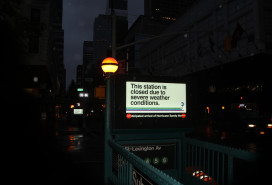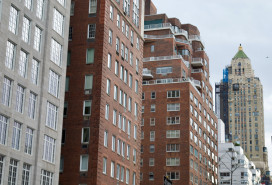Ask Altagracia: Can I sublet my NYC rent-stabilized apartment while I’m away?
- Yes, if you follow the rules, including notifying the landlord in writing
- It is illegal to charge a subtenant an amount higher than the stabilized rent
- Subletting a rent-stabilized unit is limited to two out of the last four years

If you are a subtenant—the person moving into the rent-stabilized apartment for a limited period of time—you can find out if you are being overcharged by contacting DHCR.
iStock
Can I sublet my rent-stabilized apartment while I’m away?
Yes, however, there are strict rules about subletting a rent-stabilized apartment and you are vulnerable to losing the lease if you overcharge a subtenant or if they stay too long. “Rent-stabilization rules always favor the person who actually lives in the apartment,” said Altagracia Pierre-Outerbridge, attorney and founder of Outerbridge Law representing residential tenants, condo owners and landlords.
So, if you are the person with the rent-stabilized lease and you plan to sublet the apartment for six months while you are away, you need to know the risks, follow the rules, and have a plan to return to the apartment.
A landlord cannot unreasonably deny a sublet request if you follow all the steps. This includes giving written notice to the landlord with all the necessary details about the subtenant such as name, address, and the reason for the sublet.
Don't ask for a higher rent
Importantly, you cannot overcharge the subtenant. This rule is designed to prevent someone from gaming the system and charging a rent of $4,000 for an apartment when rent-stabilization has set it at $1,000.
“This is illegal—and you’d face an overcharge claim against you for three times whatever the subtenant has overpaid,” Pierre-Outerbridge said.
Not only would you be liable for overcharge claims and criminal charges, but you would also risk losing the apartment. “In this situation, the person who is actually living there—the subtenant—then has a right to become the rent-stabilized tenant,” Pierre-Outerbridge said.
Be prepared to return
You can also fall afoul of rent-stabilization rules if you sublet a rent-stabilized apartment for longer than the rules allow, which is two out of the past four years.
"So you can't sublet for more than two years in the four years before your sublease ends,” Pierre-Outerbridge said. If you break these rules, the apartment may no longer be considered your primary residence and you will be vulnerable to eviction.
A small fee for a furnished unit
If you are subletting the apartment furnished, you are allowed to charge an additional monthly fee but it cannot be more than 10 percent of the rent. It’s also important to ensure the lease specifies who is paying for utilities. If it is unclear, the subtenant could argue the rent includes utilities and they are being charged an illegally high rent.
If you are a subtenant—the person moving into the rent-stabilized apartment for a limited period of time—you can find out if you are being overcharged by contacting the New York State Division of Housing and Community Renewal. They will send you the apartment’s rent history. “If you are being illegally overcharged you can file an overcharge complaint and demand a rent-stabilized lease from the landlord,” Pierre-Outerbridge said.
If you are a roommate in a rent-stabilized apartment, you cannot be charged more than your proportional share of the rent.
“If you find out you are being charged more, you’d file an overcharge claim with DHCR against the prime tenant, which is the person who signed the original lease,” Pierre-Outerbridge said. The landlord may also be liable if they’ve turned a blind eye to the situation or have colluded in an overcharge.
Altagracia Pierre-Outerbridge, Esq. is the owner of Outerbridge Law P.C, focusing primarily on tenant representation. The firm represents all sides in landlord-tenant litigation and transactional matters such as month-to-month holdovers, nuisance cases, licensee cases, harassment claims, repair cases, tenant buyouts, succession claims, DHCR overcharges and rent reductions and more. Pierre-Outerbridge has 15 years of experience litigating in Supreme, DHCR, and Housing Court. To submit a question for this column, click here. To contact Outerbridge Law P.C. directly, call 212-364-5612 or 877-OUTERBRIDGE, or schedule a meeting today.
You Might Also Like





























